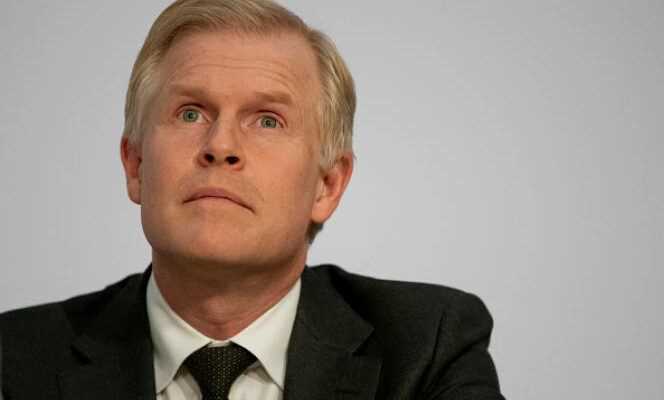He was a bridge between Germany and France, two countries he knew intimately and for which he worked with passion, convinced that the relaunch of European construction could only go through closer cooperation between Berlin and Paris. Director of the Berlin branch of the Jacques Delors Institute and professor at the Hertie School, the equivalent of Sciences Po in the German capital, from which he left the presidency in March because of a melanoma from which he thought he could survive, economist Henrik Enderlein died in Berlin on Friday May 28 at the age of 46.
Born on September 13, 1974 in Tübingen, nourished by politics from his childhood – his father was for a long time a Liberal Democrat deputy (FDP) of Baden-Württemberg before becoming Minister of Research for Brandenburg after German reunification – Henrik Enderlein discovered France by coming to do his class of 2of in the Yvelines, before returning there, three years later, at Sciences Po. There he met his future wife, Isabelle, who would become a recognized translator and with whom he would have four children.
A graduate of Columbia University in New York and the Max-Planck Institute in Cologne, the young economist began his career in Frankfurt, within the European Central Bank (ECB). He stayed there only two years, from 2001 to 2003, but made a decisive meeting there: that of the Italian Tommaso Padoa-Schioppa, then administrator of the ECB and future finance minister of Romano Prodi, to whom he convinced himself. that the European Union (EU) cannot be reduced to a market but that the establishment of the euro must be accompanied by further integration of a true common economic policy.
“A real political finesse”
If he finally opts for an academic career – at the Free University of Berlin, at the Hertie School, of which he will be one of the founders, in 2005, then as a visiting professor at Harvard or at the European University Institute in Florence. – Henrik Enderlein, however, has too much of a taste for politics to stay away from it altogether.
He will therefore do it in his own way, as a man of networks and influence. As in 2010, where he inspired the Social Democrats Peer Steinbrück – former Minister of Finance – and Frank-Walter Steinmeier – now President of the Republic – a platform noted in the Financial Times in favor of Eurobonds. Four years later, it was from him – as well as to the French economist Jean Pisani-Ferry – that Emmanuel Macron and Sigmar Gabriel, then French and German ministers of the economy, commissioned a report on “Reforms, investment and growth”. “Henrik was an ardent activist for the European cause, but, much more than that, he was a man of great culture who had real political finesse”, explain to World Jean Pisani-Ferry, with whom he had become a close friend.
You have 39.09% of this article left to read. The rest is for subscribers only.
